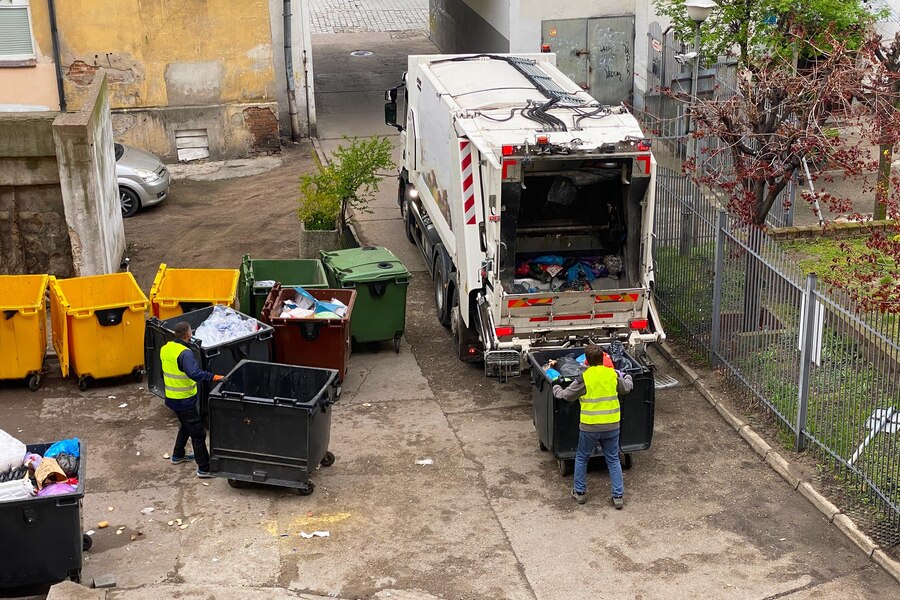Construction projects are exciting, but dealing with debris is a major problem. In this blog post, we’ll explore the best ways to remove construction debris in Philadelphia. We’ll cover understanding debris, recycling, and choosing the right hauling service. You’ll learn about DIY cleanup methods, dumpster services and costs, and Philadelphia’s unique approach to debris removal. Keep reading to keep your construction site clean and safe!
Understanding Construction Debris in Philadelphia, PA
Construction debris in Philadelphia, PA refers to waste from construction, renovation, or demolition work. It includes wood, concrete, metal, and drywall. Responsible disposal and recycling of construction waste are promoted in Philadelphia. Proper handling and disposal of hazardous materials are essential to protect the environment. Compliance with local regulations ensures legal and sustainable construction debris management.
Types of Construction Debris Commonly Found in Philadelphia
Construction projects in Philadelphia commonly generate various types of debris, including bricks, concrete, wood, and drywall. Proper disposal of this debris is crucial to avoid environmental hazards and legal penalties. To remove construction debris, options include hiring professional removal services, renting dumpsters, or using junk removal companies. Factors such as the amount and type of debris, site accessibility, and budget should be considered when choosing the right method. Minimizing construction debris can be achieved through recycling materials and proper storage of hazardous waste.
Importance of Construction Debris Removal
Proper removal of construction debris ensures a clean and safe environment. It helps prevent potential hazards and accidents, promoting an efficient and organized worksite. Responsible debris removal also protects the environment, reducing pollution. Timely cleanup improves overall project productivity. Trust a fast junk removal service for stress-free construction debris removal in the Greater Philadelphia area.
Impact of Unmanaged Construction Debris on Philadelphia’s Environment
Unmanaged construction debris in Philadelphia poses a threat to the environment. Improper disposal contaminates soil and water sources, while contributing to air pollution. Wildlife and ecosystems suffer due to the disruption caused by uncontrolled debris. Neglected debris also increases the spread of diseases and pests, and creates an unsightly appearance that decreases property value.
Best Practices for Construction Debris Cleanup in Philadelphia
Efficiently managing and disposing of construction debris in Philadelphia can be made easier with some planning ahead and following some best practices. Here are some tips to help you get started:
- Sort and separate debris for recycling or proper disposal to minimize environmental impact.
- Use dumpsters and containers to centralize and contain debris, following local regulations.
- Consider hiring professional junk removal services for thorough and convenient cleanup.
By following these guidelines, you can ensure that your construction site remains organized and safe, and that you are doing your part to minimize waste and protect the environment.
Organizing Your Construction Site for Efficient Cleanouts
To ensure efficient cleanouts on your construction site, designate specific areas for different types of debris and regularly remove it to maintain a safe environment. Use clear labeling and signage to indicate proper disposal locations, and implement a debris removal schedule for timely cleanup. Train workers on proper debris management practices to promote efficiency.
Choosing the Right Construction Debris Hauling Service in Philadelphia e
When selecting a construction debris hauling service in Philadelphia, consider their experience and expertise. Look for a company that offers a wide range of debris removal services, including commercial junk removal services. Ensure that the hauling service is licensed and insured for added liability protection. Read customer reviews and testimonials to gauge the quality of their service. Finally, request a detailed estimate and compare prices before making your decision.
Factors to Consider When Hiring a Construction Debris Hauling Service
When hiring a construction debris hauling service, consider their availability for same-day or next-day cleanup. Ensure they can handle heavy lifting and removal of bulky items. Look for proper disposal methods, including recycling and environmentally friendly practices. Check if they have knowledge of local regulations and adhere to proper disposal procedures. Lastly, assess their customer service for professionalism and responsiveness.
How to Evaluate a Construction Debris Hauling Service in Philadelphia?
When evaluating a construction debris hauling service in Philadelphia, it’s important to inquire about additional charges or hidden fees, ask about the disposal process and if they recycle usable materials, check if they provide free on-site estimates, ensure they have the necessary equipment for efficient removal, and consider their reputation in the industry.
DIY Methods for Construction Debris Removal
Renting a dumpster or roll-off container allows for convenient disposal of construction debris. Regular trips to local recycling centers ensure proper recycling of materials. Community clean-up programs provide opportunities for debris removal. Salvageable materials can be repurposed or donated. It is important to follow safety guidelines when handling and disposing of debris.
Safety Measures for DIY Construction Debris Cleanup
When engaging in DIY construction debris cleanup, it is important to prioritize safety. This includes wearing appropriate personal protective equipment (PPE) to prevent injuries. Use proper lifting techniques and equipment for heavy debris. Secure loose debris to avoid accidents during transport. Be cautious of hazardous materials and dispose of them properly. Keep work areas clear and organized to minimize trip and fall hazards.
Recycling Construction Debris in Philadelphia, PA
To recycle construction debris in Philadelphia, PA, start by researching local recycling facilities that accept such materials. Separate recyclable items, like wood, metal, and concrete, for proper recycling. Explore specific options for recycling materials such as asphalt or drywall. Consider using recycled construction materials for future projects to promote sustainability in the Greater Philadelphia Area. Support local recycling initiatives.
How to Sort Construction Debris for Recycling?
To properly sort construction debris for recycling, separate recyclable materials from non-recyclable ones. Categorize debris into different types like wood, metal, and concrete. Dispose of hazardous materials separately for safe disposal. Follow local recycling guidelines for specific sorting requirements and maximize recycling by reducing contamination in debris.
Where Can You Take Your Recyclable Construction Debris in Philadelphia?
When it comes to recycling construction debris in Philadelphia, there are several options available. You can check with local recycling centers to see if they accept the materials you have. Some landfills may also have designated areas for construction debris recycling. Additionally, there are specialized recycling facilities for specific types of debris. Donating materials to local nonprofits or reuse centers is another great option. And finally, you can utilize recycling drop-off locations for convenient disposal.
Dumpster Services for Construction Debris in Philadelphia
Renting a dumpster provides a hassle-free solution for efficient construction debris removal in Philadelphia. Different sizes are available to suit project needs, allowing easy access and convenient cleanup. It’s important to comply with local regulations to ensure proper usage. With dumpster services, you can easily dispose of large volumes of debris without stress.
Deciding on the Right Dumpster Size for Your Construction Debris
Assessing the amount and type of debris is crucial when deciding on the appropriate dumpster size for your construction project. Consider the available space at the site to ensure proper placement. Consulting with dumpster service providers can provide recommendations based on project details, avoiding overfilling and promoting efficient debris removal. Opt for a slightly larger dumpster if unsure about the exact debris volume.
Guidelines for Dumpster Usage in Philadelphia
When renting a dumpster for construction debris removal in Philadelphia, it is important to follow certain guidelines. Obtain the necessary permits and approvals, adhere to weight limits set by the dumpster service provider, and avoid disposing of prohibited items. Additionally, ensure that the dumpster doesn’t block public roads or obstruct access to neighboring properties. Coordinate pickup and disposal schedules with the service provider for efficient and hassle-free waste management.
Cost of Construction Debris Removal in Philadelphia, PA
Construction debris removal costs in Philadelphia, PA depend on factors like debris volume and type. Additional fees may apply for hazardous materials disposal. To accurately assess the total cost, request quotes from multiple companies and consider any hidden fees. Some companies offer free on-site estimates for a more precise cost estimation.
Factors Influencing the Price of Construction Debris Removal Services
When it comes to removing construction debris in Philadelphia, there are several factors that can influence the cost of the service. Here are some key considerations to keep in mind:
- Distance: The further the construction site is from the disposal facility, the higher the transportation expenses may be, which can impact the overall cost of the removal service.
- Weight and Volume: The amount of debris being removed is also an important factor. Generally, the more debris there is to be removed, the more it will cost. The weight of the debris can also influence the pricing structure.
- Complexity of the Project: If the construction project involves demolition work or other complex tasks, it can result in higher removal costs. Additional charges may apply for services like cleanouts or heavy lifting.
- Accessibility: Finally, the level of accessibility at the construction site can also influence the removal process and cost. If the site is difficult to access, it may take longer to remove the debris, which can affect the overall cost of the service.
By keeping these factors in mind, you can better understand the cost of construction debris removal services in Philadelphia and choose the best option for your needs.
What makes Philadelphia's approach to construction debris removal unique?
Philadelphia stands out in its approach to construction debris removal by prioritizing environmentally friendly practices. The city encourages recycling and sustainable disposal of construction waste, while also enforcing stringent regulations for handling hazardous materials. To reduce reliance on landfills, Philadelphia promotes collaboration between contractors and junk removal services for efficient debris removal.
How does Philadelphia ensure safety during construction debris demo and removal?
Philadelphia prioritizes safety by enforcing strict regulations for construction debris demo and removal. Contractors must follow safety protocols, obtain permits, and undergo training. Regular inspections are conducted to ensure compliance with safety standards, and emergency response plans are in place to address any potential hazards or incidents.
Conclusion
Proper construction debris removal is crucial for maintaining a clean and safe environment in Philadelphia. It protects against pollution, ensures worker and resident safety, and promotes sustainability. Whether you hire professionals or opt for DIY methods, follow safety measures and regulations. Recycle debris by sorting it and taking it to recycling centers or designated drop-off locations. Let’s all contribute to a cleaner and greener Philadelphia.





